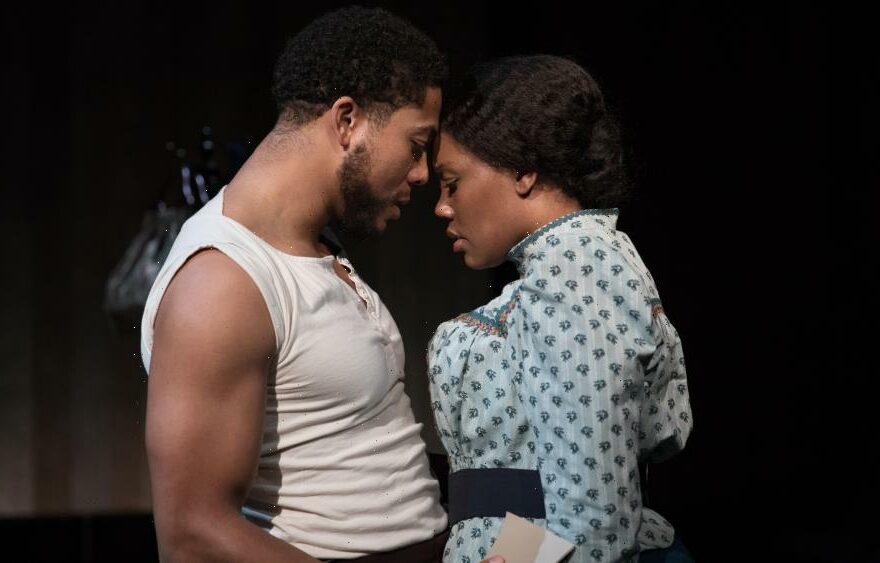Passions were never in short supply in Lynn Nottage’s 2003 play “Intimate Apparel,” where loneliness, longing and hope hover in every scene. In the latest, long-in-the-making collaboration between Lincoln Center Theater and the Metropolitan Opera, those passions fly free, revealing the operatic heart of “Intimate Apparel” in a new opera adaptation of this story of a 35-year-old Black seamstress aching for love in 1905 New York.
The tight construction of the play, with its spare two-hander scenes and focus on the lives of ordinary and overlooked people, makes it a natural as a stripped-down chamber opera. It also suggests a future life among those musical companies looking for a small-scale, relatable work filled with emotional grandeur for specialized voices. Here in its Lincoln Center premiere, rich vocal talents fill Ricky Ian Gordon’s sung-through music not just with soaring notes but with heartfelt expression.
Leading them is the sensitive soul at the center of it all, a mesmerizing Kearstin Piper Brown as Esther, who has lived in a Lower Manhattan boarding house for the past 18 years toiling alone over her sewing machine, creating exquisite undergarments for women to wear in their boudoir. (These creations are beautifully realized by costumer Catherine Zuber.) Esther’s customers run the gamut from an unhappily married society woman, Mrs. Van Buren (Naomi Louisa O’Connell), to Mayme (Krysty Swann), a prostitute with dreams of her own.
Despite the warnings of her sympathetic landlady (Adrienne Danrich, a maternal presence without sentimentality), the illiterate Esther — with the writing help of Mrs. Van Buren and Mayme — begins a correspondence with George Armstrong (Justin Austin), a laborer working on the Panama Canal, which leads to their eventual meeting, marriage and agonizing conflict.
Nottage has stripped down her play to a tight libretto. There’s an elegant, poetic simplicity in its essential journey of the human heart as it navigates matters of race, gender, religion and class.
Overlaying it all is Gordon’s lush score, which remains true to its operatic scope — and is aided by super-titles which help when words are lost in the musical stratosphere. While far from a true compositional hybrid, the score still manages to reference ragtime and other styles for the various characters played by a rich-voiced ensemble, accompanied by Nathaniel LaNasa and Brent Funderburk on two pianos and conducted by Steven Osgood.
A vibrant Swann has some fine moments, some of which sometimes drift welcomingly toward musical theater. Austin is also a strong presence as the troubling Armstrong, and in this version is given further depth of character in song and backstory. In this intimate setting, the little touches are everything and director Bartlett Sher brings clarity of intent to these minimalist moments: a brush of a lapel, a surprising kiss, a stroke of satin, a hesitation, silence, stillness.
Giving the work its ache as well as its edge is the tension created between the deeply felt emotions of the characters’ inner lives and the restrained formality of the language and mores of the period. Nowhere is this more touching than in the relationship between Esther and Mr. Marks (Arnold Livingston Geiss), the Jewish fabric salesman. The two share an unspoken but palpable love, and these corseted emotions strain to break free throughout the work. When they do — as when Esther and Mayme declare their need for self-realization as they sing “No one does it for us” — it’s liberating.
Each act ends with large sepia-toned photographs of “unidentified Negros, ca. 1905,” reminders of a nearly lost and unrecognized society. In “Intimate Apparel” Nottage and Gordon challenge Esther when she says, “My life ain’t worthy of words.” This new and glorious opera reclaims their stories, passions and humanity as well as their rightful place woven into the American tapestry.
Source: Read Full Article
